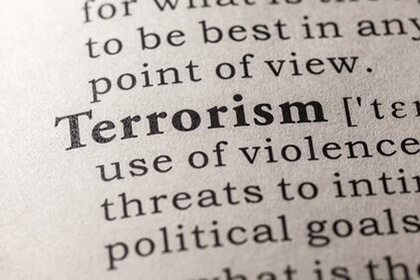A search for compensation often follows in the wake of terrorist attacks. Persons injured in such attacks may have suffered significant losses for which they require reparation if they are to have a chance of regaining a semblance of normality in their lives. What are the prospects of recovering compensation for such injuries in Australia? The question is topical given the recent spate of terrorist atrocities across the world.
First, it might be possible to obtain compensation via a victims of crime compensation system. These systems are government-run legislative schemes. Injury compensation is paid by a public body rather than by the offender. However, looking to such a scheme is likely to be an option of last resort where serious injuries have been suffered. This is because the amount of compensation that these criminal injuries compensation systems offer is generally very modest. Awards made by such systems would usually leave a person who has been seriously injured by a terrorist attack largely uncompensated.
Second, it might be possible to claim compensation from the person who carried out an attack, persons who directed or co-ordinated the attack, and any persons who funded the attack. The main problem with such claims is that the persons concerned will usually not be good litigation targets. The individuals in question may be located overseas, in which case there will likely be major problems encountered in enforcing any judgment that is obtained against them. Even if they are located within Australia, the persons responsible for a terrorist attack are unlikely to have assets which would be sufficient to satisfy the legal liabilities that they have incurred. Compounding problems for victims in this regard is that insurance policies often do not cover liability for terrorist acts. Suppose that a terrorist uses a motor vehicle as an instrument of destruction, as recently occurred in Nice, Italy. An insurance policy that extends to liability in respect of injury caused through the use of a motor vehicle might be rendered inapplicable because the cover does not encompass deliberate acts (terrorist acts are, by definition, deliberate) and/or because damage caused by terrorist attacks is excluded from the scope of cover.
Third, it might be possible to sue public authorities on the basis that they were negligent in failing to prevent the attack. Again, formidable difficulties are likely to be encountered in this regard. The courts may well refuse to impose a duty of care on the authority in issue for policy reasons (e.g., a desire to ensure that law enforcement efforts are not hindered by the threat of liability), and in the absence of a duty of care, no liability in negligence will arise. Even if a duty of care can be established, it could be very difficult to show that the authority was negligent in failing to stop an attack. Terrorist attacks are unpredictable. Individual terrorist acts may be unforeseeable. In these circumstances, it may often be hard to show what more the authority in issue could realistically have done, bearing in mind that no authority will be expected by the courts to have focused exclusively or even mainly on the specific threat that materialised. According to well-established principle, the courts will accept that public authorities need to allocate their limited resources so as to guard against a range of risks. Finally, even if negligence can be proved, it may be difficult to show that the loss was caused by that negligence. This is because, even if a public authority failed to take reasonable care to prevent a terrorist attack, the attack may have happened even if proper care had been taken. In this event, no injury compensation will be payable.
In summary, efforts to recover compensation in respect of damage caused by a terrorist attack are likely to encounter very significant problems. This is not to say that the quest for compensation will always be hopeless. In the right circumstances, and with careful preparation, there may be good prospects of obtaining a remedy.
If you have been injured in a terrorist attack either in Australia or overseas, it is important to seek specialist legal advice as strict time limits often apply. For a free, no obligation consultation telephone 1800 251 800 or make an online enquiry.
Written by Dr James Goudkamp
James Goudkamp is an Associate Professor of Law at the University of Oxford. He is the author of numerous books about personal injury compensation. James also practises as a barrister in London and assists Tom Goudkamp and his team with personal injury claims with a European connection.



